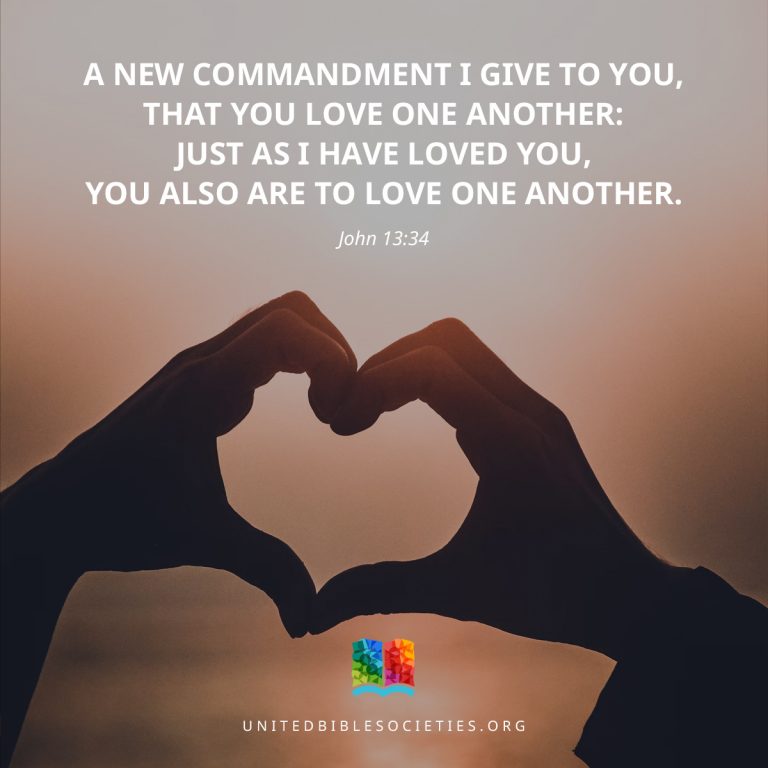The Tongue
1 My friends, not many of you should become teachers. As you know, we teachers will be judged with greater strictness than others. 2 All of us often make mistakes. But if a person never makes a mistake in what he says, he is perfect and is also able to control his whole being. 3 We put a bit into the mouth of a horse to make it obey us, and we are able to make it go where we want. 4 Or think of a ship: big as it is and driven by such strong winds, it can be steered by a very small rudder, and it goes wherever the pilot wants it to go. 5 So it is with the tongue: small as it is, it can boast about great things.
Just think how large a forest can be set on fire by a tiny flame! 6 And the tongue is like a fire. It is a world of wrong, occupying its place in our bodies and spreading evil through our whole being. It sets on fire the entire course of our existence with the fire that comes to it from hell itself. 7 We humans are able to tame and have tamed all other creatures—wild animals and birds, reptiles and fish. 8 But no one has ever been able to tame the tongue. It is evil and uncontrollable, full of deadly poison. 9 We use it to give thanks to our Lord and Father and also to curse other people, who are created in the likeness of God. 10 Words of thanksgiving and cursing pour out from the same mouth. My friends, this should not happen! 11 No spring of water pours out sweet water and bitter water from the same opening. 12 A fig tree, my friends, cannot bear olives; a grapevine cannot bear figs, nor can a salty spring produce sweet water.
The Wisdom from Above
13 Are there any of you who are wise and understanding? You are to prove it by your good life, by your good deeds performed with humility and wisdom. 14 But if in your heart you are jealous, bitter, and selfish, don't sin against the truth by boasting of your wisdom. 15 Such wisdom does not come down from heaven; it belongs to the world, it is unspiritual and demonic. 16 Where there is jealousy and selfishness, there is also disorder and every kind of evil. 17 But the wisdom from above is pure first of all; it is also peaceful, gentle, and friendly; it is full of compassion and produces a harvest of good deeds; it is free from prejudice and hypocrisy. 18 And goodness is the harvest that is produced from the seeds the peacemakers plant in peace.
aza 3
ŋizaw eḏorɔ kweleny kweḏi ṯiŋla
1 lieŋgeri linyi, eṯere firgaḏi mac luru daŋgal-na eḏi zi ilŋiiḏini liḏaḏu, ilŋiicaŋa gwu eḏaruŋw, nyiŋa leṯi zi ilŋiiḏini liḏaḏu linḏinyji eḏi ṯecici ŋiɽaŋal ŋi ŋifirli eḏi liḏaḏu la. 2 ŋeṯir zi aku nyiŋa tatap pir-pir ŋuru. mezi kwizi ere ṯəmzi ŋere mirec mac ṯiŋla ṯi ŋworɔ kwizi kwizuɽuna dar, na ŋweḏi ŋuma eḏorɔ kweleny kweḏi aŋna wuŋwun minmin tɔk. 3 mer enjici limɔrta ŋwujami kworɔ-na, eṯir nyji inyici nana, na eṯir zi iili lir yaŋna yeŋen minmin tɔk. 4 izarṯi limerkaba tɔk; urir gwu keni lupa beṯe-beṯen, na eṯi zi kurun kupa iili yireṯ yi yeŋen, lakin eti kweleny kweḏi merkab eḏi ŋuma eḏurlazi ezir yi wete nyiḏak weṯuŋw naŋni, kwɔmne gi kwɔkwɽeny. 5 ṯiŋla ṯir ṯa ṯɔkwroc lakin nuŋw eḏi ŋuma eḏi ŋi ellini ŋitezir. lufru leḏi igə lɔkwroc leḏi ŋuma eḏi dindezi kamruŋa kupak kwuḏer-na.
6 na ṯiŋla ṯiri igə. kwɔmne-na kweḏi yaŋna yeri, eṯi ṯiŋla orɔ ṯurmun ṯeḏi ŋikya, ṯeṯi ruŋwi aŋna minmin, ṯeṯi uṯeḏa igəŋi ki lizi-na leḏi ŋelŋe tatap, igə weḏi ṯiŋla weḏi jahannam wiri. 7 kwɔmne tatap kwumiiḏu kwir-na ter ter na nyiɽow tɔk, na kwɔmne kweṯele yari yelu, na kweḏi rujul-na tɔk, kweḏi ŋuma eḏi iɽeni, na lizigwunaŋ orɔ limɔ iɽezi. 8 lakin ṯiŋla ta, na kwizi ere kwere mac kweḏi ŋuma eḏi iɽezi, ṯir ŋikya ŋiti ŋeṯi miḏini ḏuṯ, ṯurena ŋia-na dedep ŋeḏi ŋiɽany. 9 a kweṯir pa ortaḏa Kwelenyi kwir Papa ṯiŋla ṯi, na ṯiŋla ṯi ṯa kḏa tɔk eṯir ṯi ɔllɔlɔ lizi lidaɽmina eḏaɽani Allah. 10 kworɔ gi ṯa kwutuput eṯi gwu ṯortaḏa ruḏa, na yufulu tɔk. ŋende ŋofḏana eḏorɔ ŋwu, lieŋgeri linyi, 11 a liminḏa luronya lere leṯi gwu ŋaw ruḏana ŋiɽen, ŋami tɔk ŋiɽi tɔk kezir wutupun a? 12 kwoḏa kwedi ŋuma eḏi riɽi ŋwiidi, lieŋgeri linyi, ya kiidi eḏi riɽi ŋwoḏa? beri. lurony leḏi ŋaw ŋorja liti leḏi ŋuma mac eḏirṯeḏa ŋaw ŋami tɔk.
ṯeḏinayeyna ṯir ter ter ṯeḏi Ṯigɽim, na ṯeḏi ṯurmun
13 eya kwiri daŋgal-na kweḏi yeyna, kwilŋiitizina tɔk? eḏuŋw zi ruweze lu ŋeḏre ŋi ŋuŋun, kwiḏi tugwori, kaka urŋw gwu kweḏi yeyna. 14 lakin ma ke ŋiɽany mindaŋ eḏi ŋi umi liḏaḏu rugwor-na, na ma orɔ limirṯiɽu tɔk ta, ŋofḏana eḏi izanni rugwor-na eḏi ṯeci ṯellina ṯalu ṯir ŋidiny kezni, ṯeṯermiḏeḏa ŋiɽaŋal nana ŋirlalu. 15 teḏinayeyna tir kaka ta ŋwu, titi tir kḏa tetoɽa kilerena mac, lakin eṯuŋw orɔ ṯeḏi ṯurmun, titi lirlinelu ter mac, lakin teḏi ibliiz ṯiri. 16 kaka mer gwu ke ŋiɽany, ŋimirṯiɽu ŋi, er enḏa ŋir ŋitəmbilna, na ŋudur ŋir-na ter ter. 17 na teḏinayeyna ṯeḏi kilerena eṯuŋw orɔ kerreny ṯizuɽu-na, na eṯuŋw eḏi ŋiɽena-na, eṯuŋw ḏe jiɽem, eṯuŋw zi ketice liḏaḏu kəni, eṯuŋw ureni ŋimɽi-na, nyor ŋi nyeŋen nyizaw, na eṯuŋw ere orɔ rugwor-na riɽen ŋidiny ŋi mac. 18 kla leṯamɽi ŋiɽena eṯir kwe ŋiɽena kezir wete nyiḏak weṯir gwu ele; na ṯuna teŋen eṯuŋworɔ ŋiɽena.

